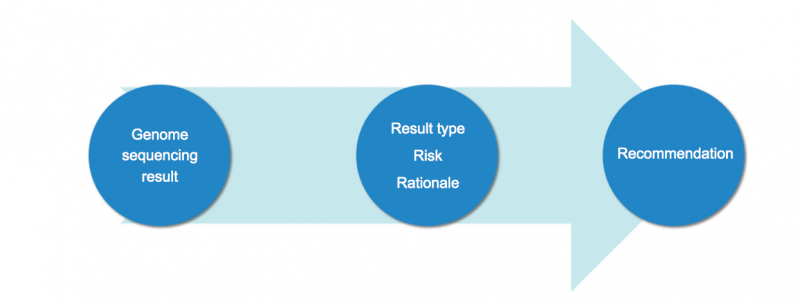
We know that genomics are playing an increasingly important role in modern day medicine, but have you ever wondered how primary care physicians discuss and make clinical recommendations about genome sequencing results? This informative paper, a new online-first publication in the Journal of General Internal Medicine, describes just that. Dr. Peter Ubel of Duke GIM was the senior author of this paper entitled "How Primary Care Providers Talk to Patients about Genome Sequencing Results: Risk, Rationale, and Recommendation."
The authors shared results from their qualitative and quantitative analyses; for each genomic result discussed, researchers identified a take-home message by the PCP, categorized into six different recommendations:

continuing current management (most commonly coded)
-
further treatment
-
further evaluation
-
behavior change
-
remembering for future care
-
sharing with family members
The study concluded that PCPs distinguish substantive differences among categories of genome sequencing results and use clinical judgment to make a recommendation of continuing current management in generally healthy patients.
Click here to read the full article.
Citation:
Vassy JL, Davis JK, Kirby C, Richardson IJ, Green RC, McGuire AL, Ubel PA. How Primary Care Providers Talk to Patients about Genome Sequencing Results: Risk, Rationale, and Recommendation. J Gen Intern Med. January 26, 2018; PMID: 29374360 [Epub ahead of print] (link)